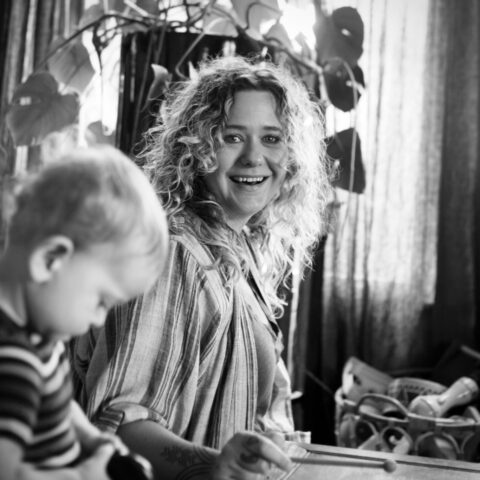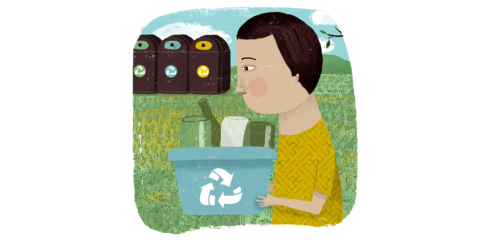People often wrongly assume that heart disease is just a problem for men, says Dr Deborah Johanson, who rounds up life-saving heart health facts for women, and finds that even the signs of a heart attack can differ between the sexes.
Every week in New Zealand, nearly 50 women die of heart disease, yet many are unaware of the basics when it comes to heart health. Much of this lack of knowledge stems from the misplaced belief that heart disease is a “man’s disease”, when many cardiovascular risk factors are specific to women. So, if you are looking to know more about your heart health and need some female-focused facts, where do you begin? Here are five of the essentials.
It’s not just a man’s disease
Heart disease, also known as cardiovascular disease, is the single biggest killer of Kiwi women. This sobering fact may come as a shock to many women, unaware that they are even at risk of developing heart disease. Differences in biology between the sexes mean heart disease generally develops seven to 10 years later in women compared with men. This delay has led to the misconception that women are protected when it comes to cardiovascular events. As a result, women tend to underestimate their risk of heart disease and are often unaware of risk factors.
To prevent heart disease, women need to be aware of the risks. Dr Fiona Stewart, a cardiologist at The Heart Group and Auckland City Hospital says: “One of the biggest issues from my point of view is that many women don’t realise that they are at risk of getting coronary disease.” Heart attacks and coronary disease lead to a lot of deaths, disability and ill health, so for quality of life, heart health is really important, she says.
Shared risk is not equal risk
Many risk factors for heart disease apply to both men and women, including high blood pressure, high cholesterol, diabetes, being overweight or obese, a history of gum disease and smoking. Family history is also important. “Just because men have been affected in the family doesn’t mean women won’t be,” says Fiona. “It’s just likely they’ll be 10 years older. I see so many women who say, ‘It’s only the male side of our family,’ and there’s no logic in that.”
But risk factors can affect men and women differently. Women who smoke, for example, are 50 percent more likely to develop heart disease than men who smoke. Female smokers are also more likely to have a heart attack than their male counterparts. Diabetes increases the risk of heart disease three to seven times in women but only two to three times in men. Moreover, women with diabetes are 50 percent more likely to die from heart disease than men with diabetes. “We normally say women run into trouble 10 years later than men from coronary disease,” says Fiona. “But if they develop diabetes, you lose that whole 10-year advantage.”
Hormones can affect heart health
Until recently, much of the research and many healthcare practices around heart disease were based on men’s experiences. But scientists and healthcare professionals are learning that there are key differences between the sexes when it comes to cardiovascular health. One of these differences lies in sex hormones – with an established link between hormonal variations and cardiovascular risk in women.
Women who develop complications in pregnancy may be at risk. “Pre-eclampsia, in particular, is a marker – not just for increased hypertension in future, but for coronary disease.” A history of gestational diabetes also increases risk, although not as much as ongoing diabetes, says Fiona. Polycystic ovary syndrome is also associated with increased risk of heart disease.
Before menopause, oestrogen plays a protective role in preventing heart disease – relaxing the arteries and promoting good cholesterol. While this means women tend to develop heart disease several years later than men, there is a considerable spike in cardiovascular risk following the onset of menopause. This increased risk is even greater in women who go through menopause prematurely. “Women who have premature menopause also have much higher rates of coronary events,” says Fiona. This includes women who naturally go into menopause very young and those with surgically induced menopause, because they have had their ovaries removed.
Other risk factors
Women with rheumatoid arthritis are at higher risk of heart disease. Women are three times more likely to be diagnosed with this condition – and those with rheumatoid arthritis are twice as likely to develop heart disease. Ethnicity is also important. “The rates are higher in our Maori and Pacific women, so that’s a really important group to consider,” says Fiona.
“One of the very big groups we think about now,” says Fiona, “are women who’ve had breast cancer. The North American approach now is that if a woman has breast cancer, they should see a cardiologist at the time.” Some of the drugs used in treating breast cancer can cause damage to the heart, says Fiona.
“Another issue is long-term effects from radiation therapy. I wouldn’t want anyone to think they should be turning down radiotherapy if that’s the recommended treatment for their breast cancer, but it is important to recognise that there are potential long-term effects.”

What you can do
Have a heart health check-up. According to the Heart Foundation, women without any cardiovascular risk factors should have regular heart health checks from age 55. For women who do carry risk, this decreases to age 45. Māori, Pacific and South Asian women should start their regular heart checks from age 40.
Get your greens. Heart health walks hand-in-hand with healthy eating. Make sure to include plenty of fresh fruit and vegetables in your diet. Wholegrains, nuts, seeds and healthy fats, such as oily fish, are also important. Avoid processed foods and cut back on sugar, salt, saturated fats and trans fats. If you smoke – consider quitting.
Beware of blood pressure. High blood pressure often has no symptoms, but can cause considerable damage to the heart. It is estimated that one in five New Zealanders has high blood pressure – and that many are unaware of it. For women with no cardiovascular risk factors, blood pressure checks should begin at age 18. “It is also important for younger women on the pill to have a blood pressure check,” says Fiona.
Stress-busting strategies. Stress has been shown to increase the risk of heart disease and can lead to negative lifestyle choices such as smoking and poor diet. Regular exercise, good sleeping habits and relaxation techniques can all help reduce stress.
Exercise essentials. Aerobic exercise and strength training are two important forms of exercise for heart health. Aerobic exercise improves circulation and lowers blood pressure, while strength training can help build muscle. Doctors recommend at least 30 minutes of heart-pumping exercise at least five days per week and two non-consecutive days of strength training.
Don’t forget diabetes. Get to know the signs and symptoms of diabetes and talk to your doctor if you are concerned. For women with diabetes, blood pressure and cholesterol checks, healthy eating, regular exercise, effective diabetes management and maintaining a healthy weight are all ways to help protect your heart.
Heart attack symptoms for women
The most common symptom of a heart attack for both men and women is chest pain. However, in women, this pain can often feel more like pressure or tightness, rather than the chest-grabbing pain we usually associate with heart attacks. In addition, women are also more likely to experience heart attack symptoms that are unrelated to chest pain, including:
- Neck pain
- Jaw pain
- Upper abdominal pain
- Upper back pain
- Nausea and/or vomiting
- Sweating
- Dizziness or feeling light-headed
- Arm pain (in one or both arms)
- Feeling unusually tired
If you think you or someone you are with is experiencing any of the symptoms of a heart attack, call 111 immediately.
Deborah Johanson is a freelance medical and health writer. She holds a PhD and masters degree in health psychology and has a clinical background as a registered nurse. Deborah lives in Auckland with her husband and three children.
Related Article: Cervical Screening: The health check to end all health checks








